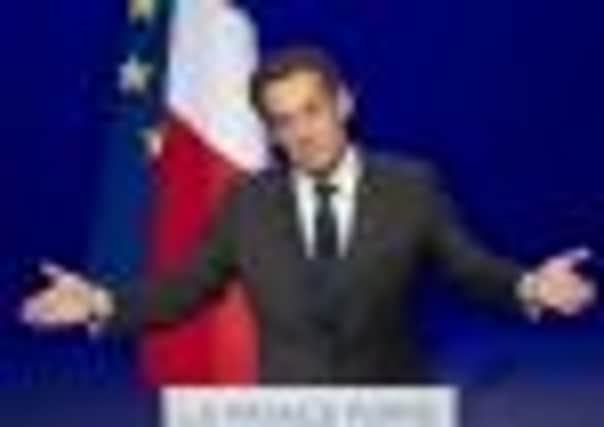France: Police raid Nicolas Sarkozy’s home in campaign cash probe


The raids yesterday were Mr Sarkozy’s first legal tangle since he was unseated after five years in office in a 6 May election by socialist François Hollande. While president he enjoyed immunity from legal pursuit. That cover expired in mid-June.
Mr Sarkozy’s lawyer, Thierry Herzog, said the raids a day after his client had left for Canada on holiday with wife Carla Bruni would show nothing and that he had already supplied information to investigators that debunked suspicions of secret meetings with Bettencourt.
Advertisement
Hide AdAdvertisement
Hide Ad“These raids will as expected prove futile,” Mr Herzog said.


The Bettencourt probe centres on financial relations between Mr Sarkozy’s conservative UMP party and the billionaire heiress of the cosmetics empire. In one strand, investigators are trying to establish whether Mr Sarkozy’s 2007 election campaign in particular was funded illicitly.
Mr Herzog said magistrates looking into whether Mr Sarkozy had received campaign funds from the reportedly mentally fragile Mrs Bettencourt had been supplied with diary details of all Mr Sarkozy appointments in 2007.
Those details, he said, “prove that the purported ‘secret meetings’ with Madame Liliane Bettencourt were impossible”.
Mr Sarkozy’s predecessor, Jacques Chirac, president from 1995 to 2007, was handed a two-year suspended jail sentence in December after a court found him guilty of misusing public funds for political purposes when mayor of Paris.
Mr Hollande has vowed to change the rules in France under his presidency so that the law no longer treats incumbents differently from other citizens regarding matters that predate their time in office.
Former judge and Green Party presidential candidate Eva Joly said there was so much evidence against Mr Sarkozy that he should have waived his immunity from prosecution while still in office.
She said: “We now have proof of illicit financing of Nicolas Sarkozy’s campaign in 2007 and that is very serious for democracy.”
Advertisement
Hide AdAdvertisement
Hide AdSégolène Royal, who stood as socialist candidate for president five years ago, also suggested that the main reason Mr Sarkozy had been desperate to remain in office was to “avoid prosecution”.
Mr Sarkozy, 57, has adopted a low profile since his defeat. He faces a number of legal threats now that he is no longer head of state.
Days after his constitutionally guaranteed immunity expired in mid-June, a lawyer announced a formal legal complaint in another affair with a political funding link in which he wants Mr Sarkozy to answer questions.
That complaint came from a lawyer acting for victims of a 2002 bombing of a bus in Karachi carrrying French naval personnel that investigators believe may be linked to a long-running corruption and illegal party-financing case.
In the so-called “Karachi Affair”, investigators are trying to unravel dealings by middlemen and possible kickbacks linked to France’s sale of Agosta class submarines to Pakistan in the 1990s.
That contract was negotiated and signed while Mr Sarkozy was a minister and spokesman for a politician who ran unsuccessfully for president in 1995, Edouard Balladur.
Political analyst Philippe Braud said Chirac’s conviction now sets a very dangerous precedent for Mr Sarkozy. He added: “What happened to Mr Chirac shows the courts are no longer afraid to go after former leaders.
“In the past the kind of behaviour that Nicolas Sarkozy is accused of was very common, but the courts did not launch prosecutions.
“But things have very much changed. The courts have become more courageous.”